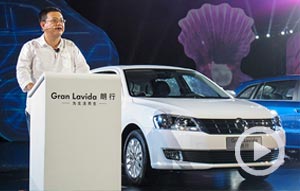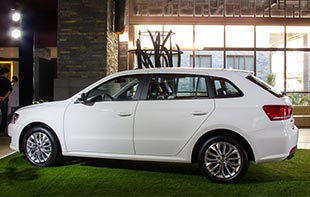China calling for higher auto industrial standards
Updated: 2013-04-01 05:47
There is a growing consensus among the media and government that China needs compulsory national standards in a variety of industries, according to reports released on the Consumer Day, which is marked each year on March 15.
The auto industry in particular has garnered a great deal of attention in the past few weeks.
First came media reports about Volkswagen's defective direct-shift gear transmission systems. Then it was reported that auto brands BMW, Audi and Mercedes-Benz cut costs in their locally produced vehicles by using a potentially toxic agent called bitumen to make pads that reduce noise, vibration and harshness.
After car owners complained of an unpleasant odor in vehicles manufactured by these automakers, it was reported that the bitumen released toxic emissions that can cause health issues, according to the same reports.
Bitumen, a term mostly interchangeable with asphalt, is a dark, highly viscous substance used for a wide range of purposes, including paving roads.
However, the bitumen used in cars is not the same as the bitumen used in paving. A special material called polymer-modified bitumen is widely used throughout the global auto industry to make NVH pads, which are used for noise-dampening and vibration reduction, a showroom employee at a Mercedes-Benz dealership said.
NVH pads used in Mercedes-Benz vehicles produced in China and the rest of the world are all sourced from the same German supplier and made in full compliance with the Global Automotive Declarable Substance List, stated the same employee.
"We would like to assure all of our customers that Mercedes-Benz uses no materials in the making of our cars that represent any health risks and is fully cooperating with the authorities to gain their recognition and support for this view," said a Mercedes-Benz public relations representative.
"Customer safety and satisfaction are our top priority, and as an automaker, we should like to gratefully acknowledge the role that the media in China has played in addressing these issues."
This issue has led to wide calls for the establishment of compulsory national standards for interior air quality inside vehicles produced in China.
In the United States, the Environmental Protection Agency requires auto manufacturers to declare the materials they use during production and undergo a review to ensure that harm to the environment and human health is minimized.
Germany has regulations governing interior vehicle pollutants, including a measure that requires new cars to undergo a period of airing out so that toxic air pollutants are dissipated before the cars go on sale.
This shows that leading auto brands with experience in global markets should work together with regulators to cultivate strict compulsory standards that benefit Chinese citizens. This is particularly important for premium automakers, for which Chinese consumers have even higher expectations.
gongzhengzheng@chinadaily.com.cn









